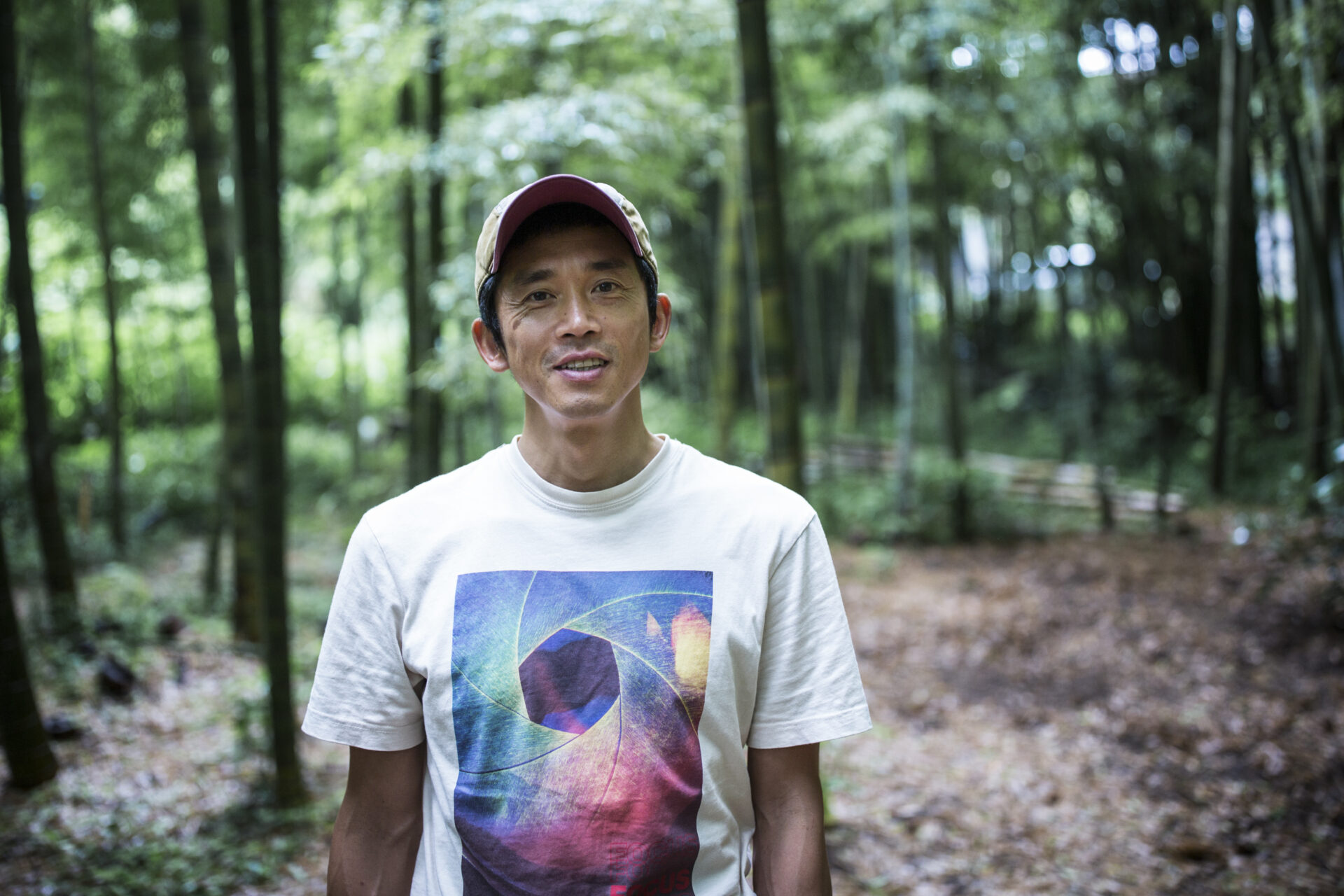Yusuke Kakuhata is an explorer who has accomplished a solo expedition of the Tsangpo Grand Canyon in Tibet and an 80 day expedition of the arctic during the polar nights, when the sun never rises.
He has written numerous books on his explorations, including “Kuhaku-no Go Mile (Five Miles in the Emptiness): Exploration of the World’s Largest Tsangpo Grand Canyon of Tibet” (published by Shueisha) and “Kyokuya-ko” (published by Bungeishunju). His books have won several awards, including the Ken Kaiko Nonfiction Award and the Oya Soichi Nonfiction Award.
As an explorer and a writer of nonfiction, Yusuke Kakuhata has garnered a lot of attention throughout his career.
In recent years, he has been spending half the year in Siorapaluk, the northernmost village of Greenland. With this village as his base, he explores the region freely, with no set route, while hunting and traveling by dog sled. He explains, “When you commit to a travel plan or route, you cannot achieve optimal experiences.”
Rather than thinking about the uncertain future, he aims to live in the realities of the present moment.
We spoke with Kakuhata about his past explorations and how his experiences in surviving in the unpredictable wilderness led him to his worldview of “Naruhoiya,” the Inuit values of “living in the moment.”
Joining the exploration club in university to advance his career
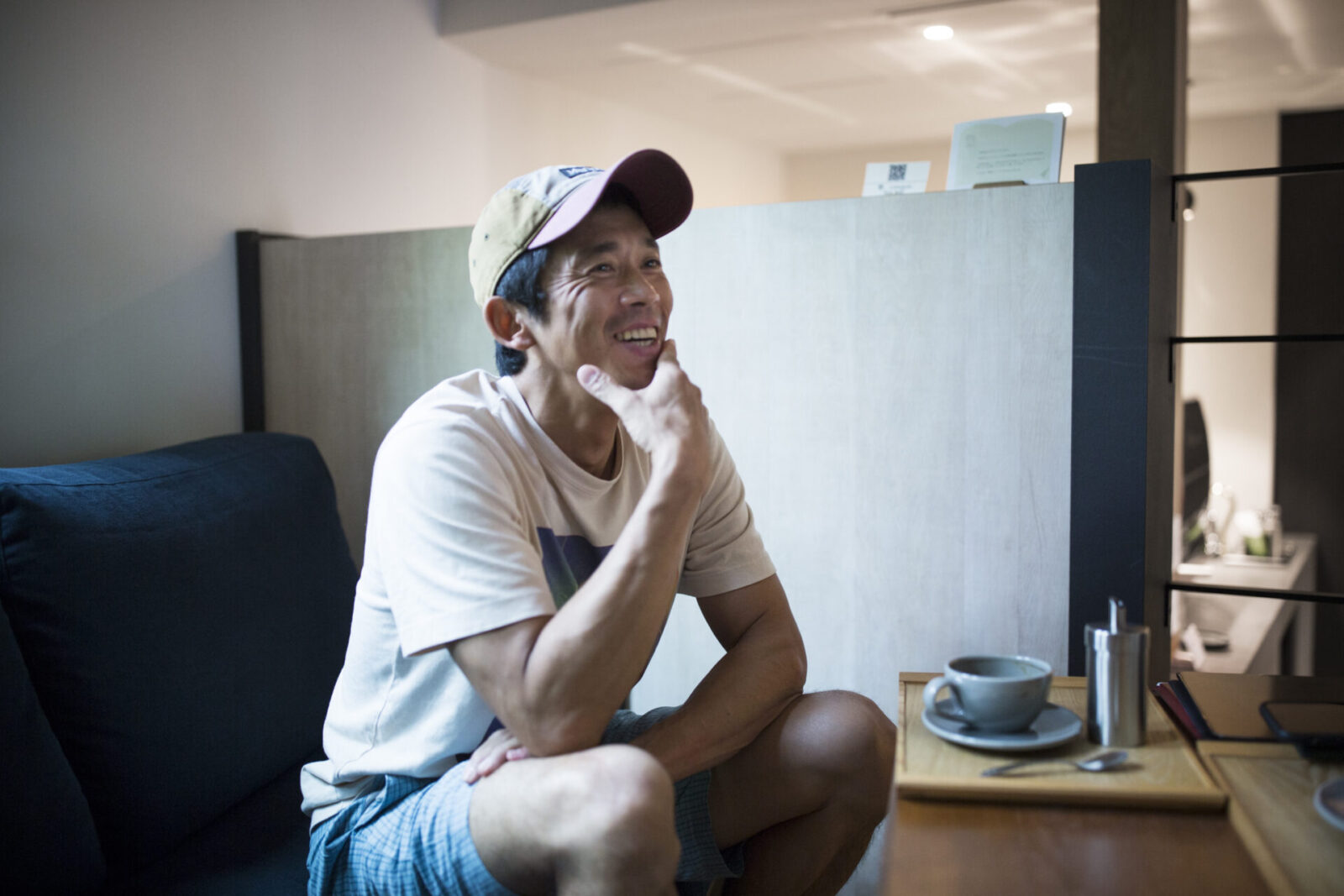
Kakuhata was born in Ashibetsu, Hokkaido in 1976 and he was introduced to the world of exploration in 1996. When he was a student at Waseda University, he found a flier for the exploration club that was recruiting new members.
“Ever since I was a kid, I never liked doing the same thing as everyone else and I had a vague desire to live a life where I would never have to wear business suits, like an archaeologist.”
“In the spring of my sophomore year, I found a flier for the exploration club of the university that said, ‘Come look for dinosaurs in Congo and ‘Excavate the ruins in the Amazon.’ It seemed very interesting to me and it felt like a gateway to a career without business suits.”
“I wanted to achieve something through this club that would pave the path for my future career so my intention of joining the club was quite sincere from the beginning. To me, it felt like a way to advance my career to a job that is free of business suits.”
After Kakuhata joined the club, he started traveling on expeditions to various regions.
They went to uninhabited islands to go survival camping, and they even went to Myanmar to look for an elusive Japanese village. However, these experiences did not allow him to feel a connection to a future career like he had hoped.
“Although I had joined the club, I found it was not easy to experience the kind of explorations that I truly wanted. Instead, I decided to start mountain climbing and I found that to be much more interesting. The simplicity of pushing my body to the extremes to climb the summit was refreshing.”
“A month-long expedition where I climbed the mountains of Hokkaido during the harsh winter season was especially enjoyable and rewarding. I think that experience of climbing in those harsh conditions and really sweating and pushing myself to keep moving forward was what led me to the path I am on today.”
At the same time, Kakuhata says he did not have a desire to pursue orthodox mountaineering.
“I have always had a slightly twisted personality, so I did not want to do what the members of the mountaineering clubs would do. I looked up to Eric Shipton, a mountaineer who explored remote mountains around the world, including uncharted canyons in the Himalayas and ice caps in Patagonia, and wanted to pursue those kinds of mountains.”
“My tendency to want to do things differently from other people came out in my approach to mountain climbing. Even back then, I had a need for something that was a little different from regular mountain climbing.”
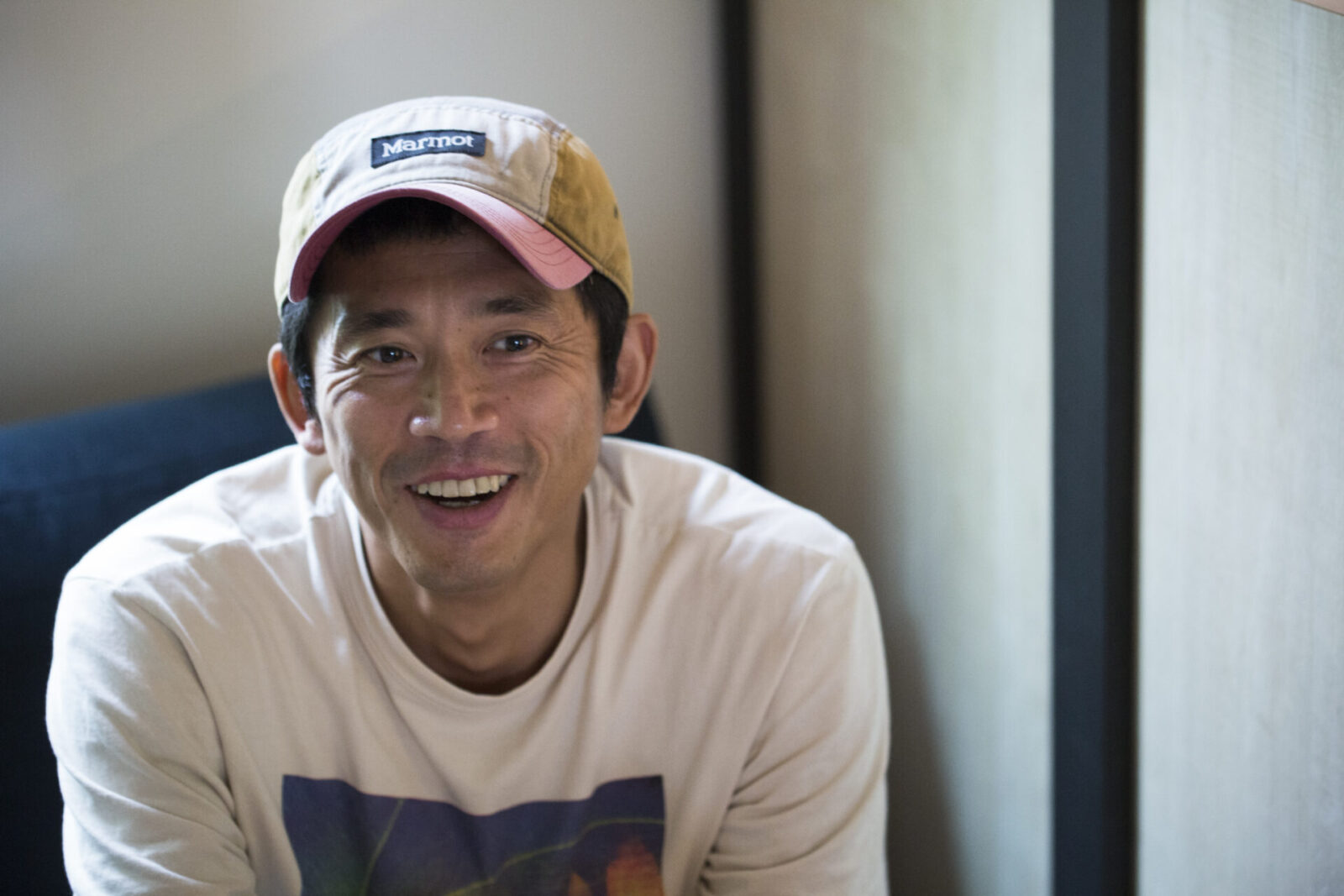
After his experience with the exploration club in university, his desire to become an accomplished explorer became stronger so he decided not to job hunt after graduation. He continued to go on various expeditions in Japan and overseas while working part time to raise money.
In 2002 to 2003, he went on a solo expedition to the Tsangpo Grand Canyon in Tibet. After returning to Japan he began working as a reporter for the Asahi Shimbun newspaper, but resigned in 2008 and went on another expedition to unexplored regions of the Tsangpo Grand Canyon.
His book “Kuhaku-no Go Mile,” which he wrote about these expeditions, quickly garnered mass attention and he won a number of awards including the Ken Kaiko Nonfiction Award in 2010, the Oya Soichi Nonfiction Award and the Umesao Tadao Literary Prize for Mountain & Exploration in 2011.
Fifteen years had passed since he joined the exploration club in university with hopes to advance his career. After the success of his book, he finally felt that he could make a living as a nonfiction writer and explorer.
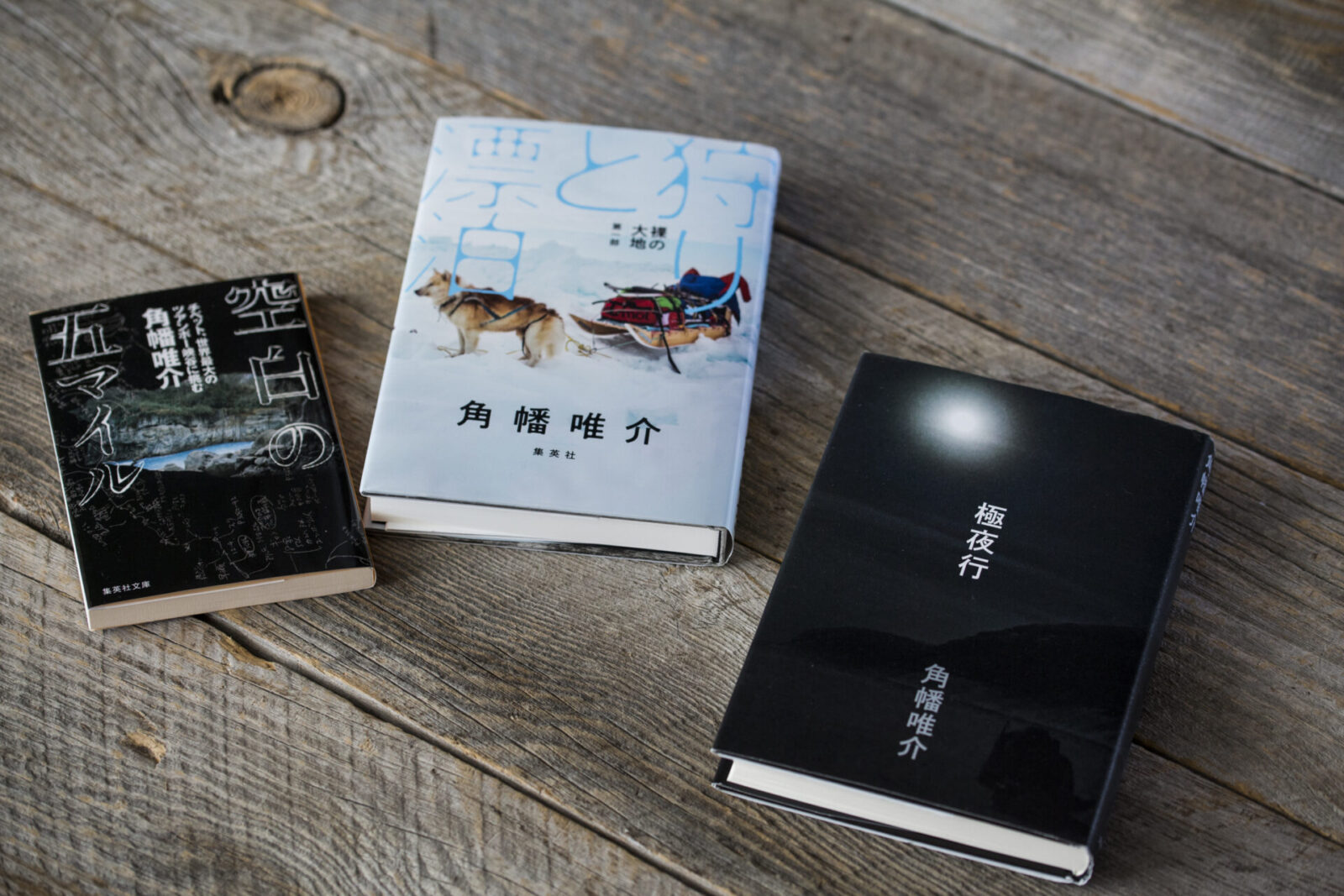
Near-death experiences enhances life and keeps the explorer moving
Following the explorations of the Tsangpo Grand Canyon, which he wrote about in the “Kuhaku-no Go Mile,” Kakuhata chose polar nights as the theme for his next big expedition.
Polar nights are when the sun never rises and it is the opposite of polar days, which is when the sun never sets. It is a world that is pitch dark all day and it only occurs in the winter months of the Arctic and Antarctic regions.
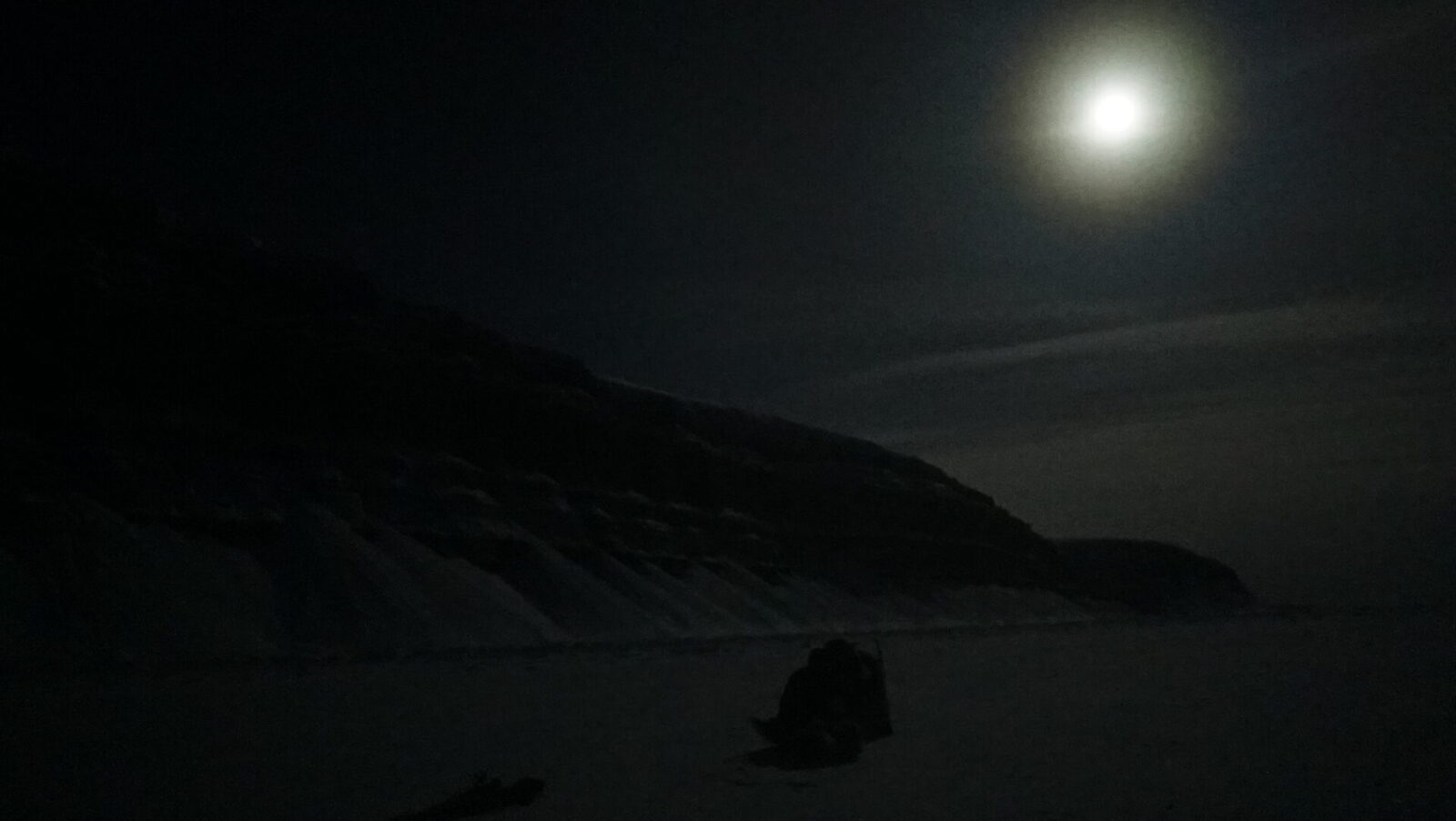
Kakuhata experienced several near-death encounters during his travels in the Tsangpo Grand Canyon, including slipping and falling down a cliff and getting lost in the wilderness. He had his reasons for choosing polar nights, a theme that has been rarely explored before, as his next expedition theme.
“The simple reason was because I wanted to go explore a world that was even more terrifying than what I had experienced before.”
“My expedition in Tsangpo felt like incorporating death into my life. By understanding the distance between life and death, I was able to experience the extremities of my life. I thought that perhaps in the polar night environment, I may be able to reach even further beyond that point.”
“Ever since my university days, I have read a lot of books about polar expeditions. A century ago, polar expeditions were very harsh. The explorers would all get frostbite and many died of starvation. I also had a simple curiosity about what the polar night world would be like. By experiencing such terrifying environments I thought I may encounter moments of ultimate living that exceed the experiences I had in Tsangpo.”
In both mountaineering and exploration, embarking on more difficult and dangerous expeditions means that the explorer is moving even closer to death than before.
However, Kakuhata says that he does not go on these explorations to die.
“I go in order to live my life to the fullest. Being close to death enhances life. Whether we are explorers, mountaineers, or artists of some kind, once we experience a life that incorporates death, the attraction of the extreme line between life and death becomes irresistible. I think that it is a natural response.”

Sharing revelations as an explorer through books
After Kakuhata decided to travel alone in the winter polar nights of the Arctic Circle, he began to prepare for his expedition in 2012.
In 2012, he conducted a scout expedition around Cambridge Bay, Canada at 69°07′ N. In 2014, he decided to base himself in Siorapaluk, Greenland at 77°47′ N. in search of a longer and darker polar night.
In the spring and summer of 2015, he set out to carry the necessary supplies for the polar night expedition on his route in advance.
During this preparatory journey he ended up having one of the most terrifying experiences of his life.
“While I was carrying my supplies on a kayak through the ocean, I was attacked by a walrus.”
“I had been told by the local Inuit people that walruses are dangerous and I found out that walruses will try to flip over your boat. I don’t know if they were just playing or if they were trying to eat me, but there is a Inuit story that says a walrus will try to pierce you with their long tusks and suck all the fat out of you.”
“While I was kayaking in the freezing waters, a walrus that probably weighed close to one ton suddenly appeared out of the water. It began howling and chasing after me. Honestly, I thought I was going to die. I am more scared of walruses than of polar bears or wolves.”
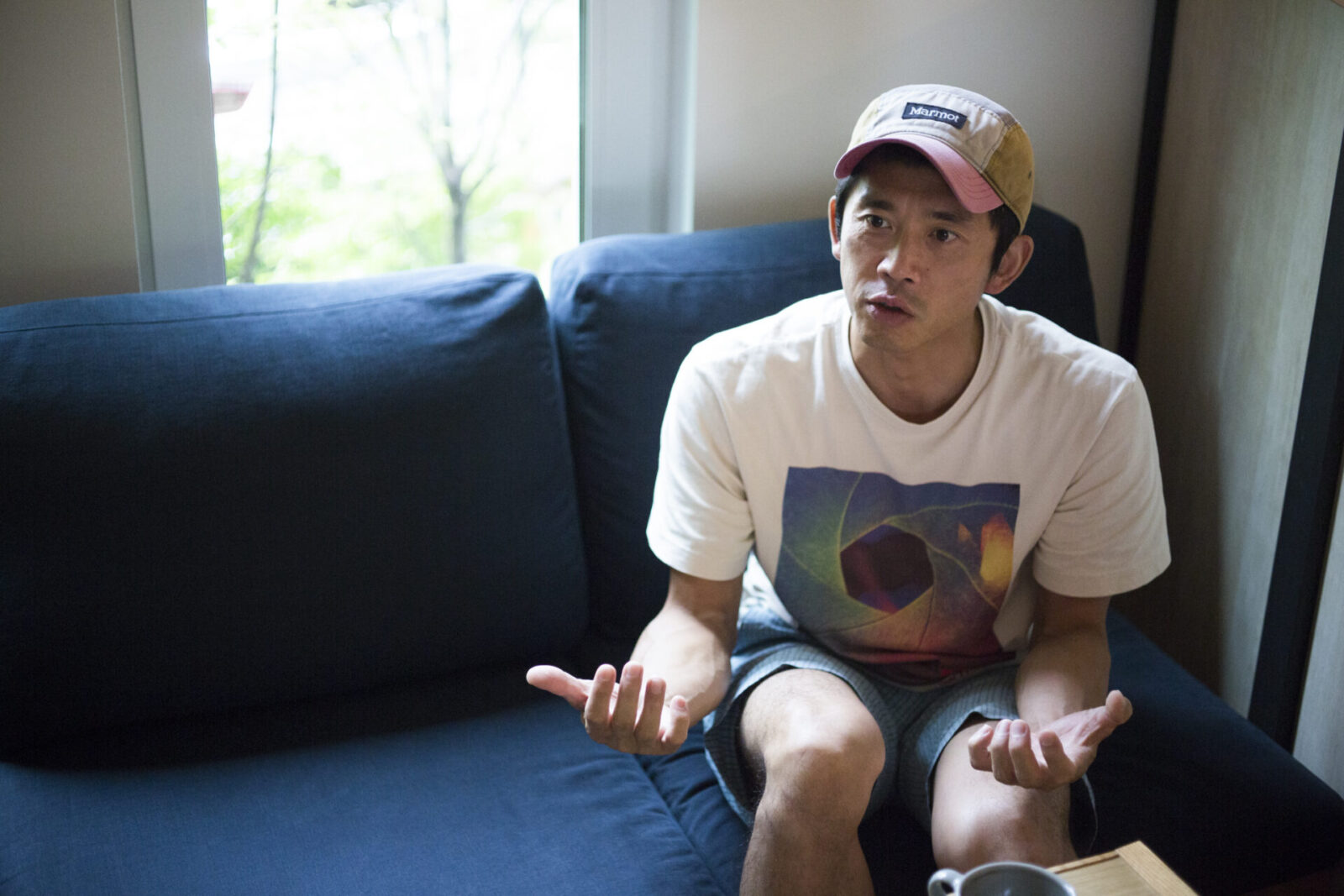
After four years of making preparations, Kakuhata departed Siorapaluk Village in December 2016 with his Greenland dog, Ujamilik. He began his journey in the polar nights for 80 days, pulling a sled carrying several dozen kilograms of luggage.
The details of his expedition are described in his book “Kyokuya-ko,” including episodes where he endured blizzards in temperatures as low as minus 40 degrees Celsius, had his depot (food and fuel stocks on route) raided by polar bears and how he almost ran out of food.
Kakuhata navigated his way through the various difficulties and challenges throughout the expedition and he traveled through the pitch dark, snow-covered land.
What was it like traveling in the polar night, in a land where the sun never rises?
“To put it simply, it is an environment where a normal night time environment lasts all day long. In other words, it does not mean that there is absolutely no visibility whatsoever. When the moon rises, you can see quite well, and even under starlight you can see a little bit when your eyes become accustomed to the dark. However, even though I was traveling through land that I had visited multiple times, I did not carry a GPS and I could not really see the terrain, so it was very easy to lose track of where I was. This was very difficult to deal with.”
“When you are traveling in the polar nights, the knowledge that you can somehow return to Siorapaluk Village gives you some hope and strength, but when you lose track of where you are, you lose that hope. I really experienced how having a beacon of light gives us the ability to have hope for the future.”
Being in the wilderness of polar nights is the complete opposite of the environment of developed urban settings, with lights, controlled temperatures, transportation systems and so on.
The stress of such harsh conditions are unimaginable. However, Kakuhata laughs as he says, “I didn’t have time to feel stressed.”
“I was busy staring at a map, trying to figure out where I was, dealing with a blizzard, or pulling the sled while fighting the cold and fatigue. All I could do was desperately focus on and get through the tasks at hand.”
“I was also very determined to publish my experiences in a book, so I was always contemplating the world around me and the experiences I was going through. Because of this, I did not experience any fear or depression in the first 40 days of the expedition.”
“In the later half of the expedition, when I was out hunting for muskoxen and failed, I did start to get weary and wished I could go home. (laughs)”
Kakuhata completed his 80 day polar night expedition and published his book, “Kyokuya-ko.” In the afterword of the book, Kakuhata writes:
“If my book ‘Kuhaku-no Go Mile’ was about my coming of age experiences, then this book ‘Kyokuya-ko’ is about a matured man who has largely settled in his way of life and sought to experience the extremities of his chosen path.”
Items essential to harsh expeditions
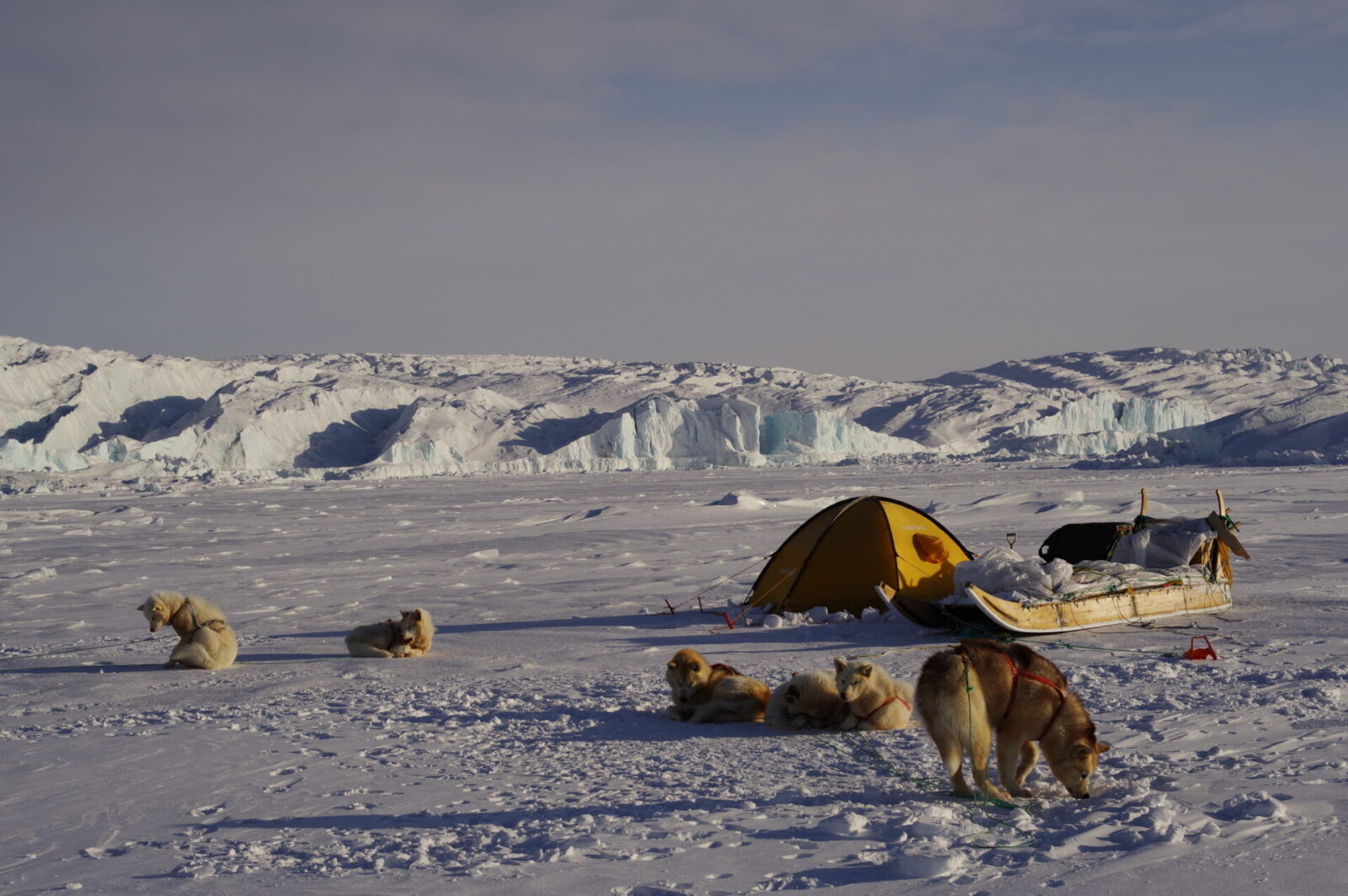
We asked Kakuhata what moments he cherishes during his explorations and how he relaxes his mind and body.
Kakuhata’s answer was unexpected.
“Whenever I am in my tent during my expeditions, I really crave chocolate.”
“I usually don’t eat chocolate at all, in fact, I rather dislike it. However, when I am on an expedition, I crave the sweetness of chocolate so I bring a lot with me on each voyage.”
Perhaps eating something sweet in an enclosed tent, after a whole day of walking and extreme use of the five senses, is a way of telling the brain and body that it is time to rest.
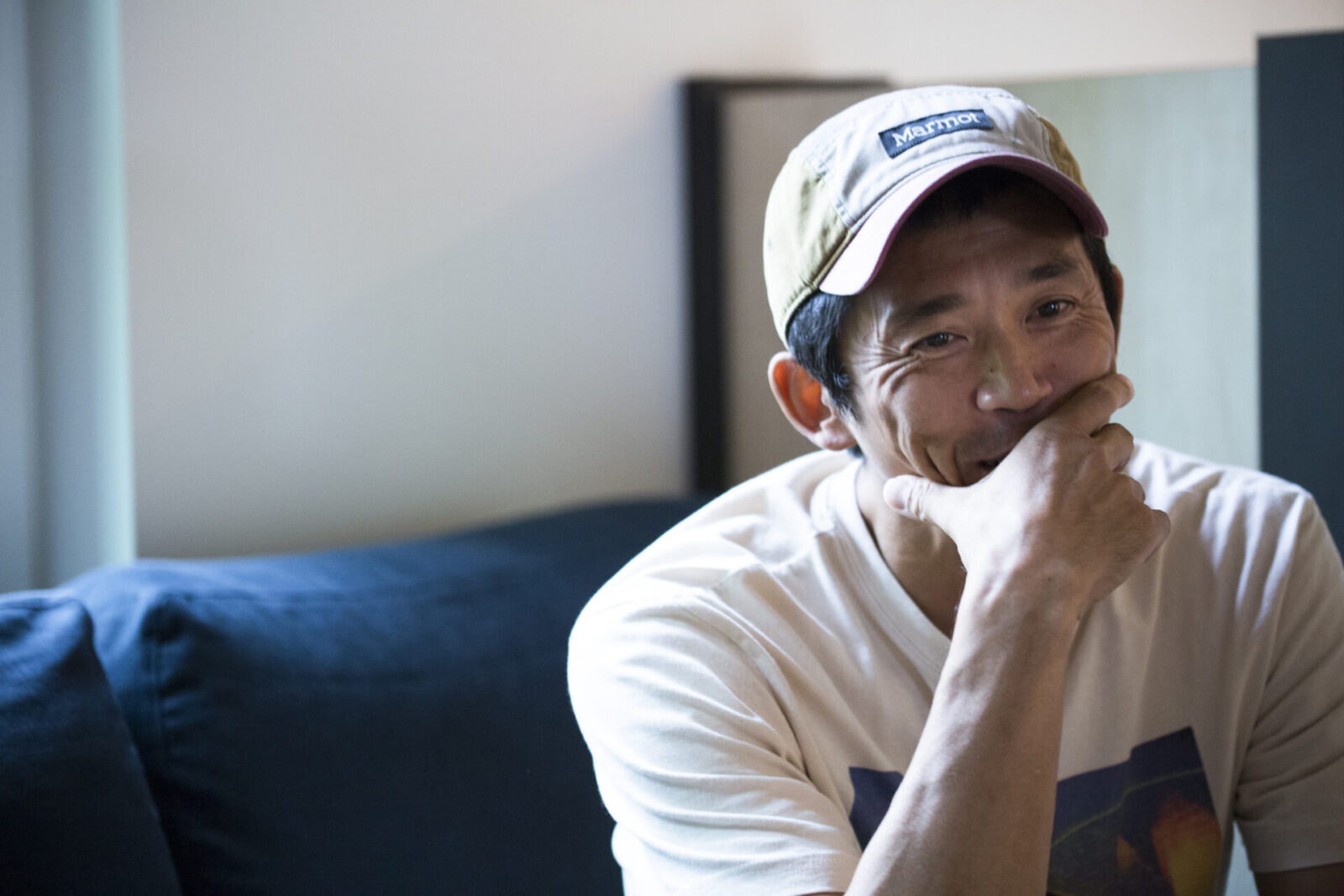
“Naruhoiya,” the Inuit way of living in the moment
After completing his polar night expedition, Kakuhata now goes back and forth from living in Japan and Siorapaluk Village, Greenland.
His current exploration style has changed from polar nights to roaming.
During hunting trips that Kakuhata calls “roaming,” his destination changes depending on the weather and the prey. It is different from expeditions, where the best route to get to a desired destination is planned in advance.
Kakuhata says that the key to roaming is to face whatever is happening to you in the moment, rather than be bound by a preconceived plan.
“Naruhoiya” means “unknown” in the Inuit language and they use this word very often. If I ask about tomorrow’s weather, or their plans for that afternoon, they often strongly reply, “naruhoiya.”
“It does not only mean ‘unknown,’ but viewing the future as naruhoiya is one of the morals that the Inuit abide by in life. The idea is that we should not make plans in advance.”

What is the nuance behind the word “naruhoiya”?
“When I am roaming, I am better able to understand the meaning behind this word. Nobody knows where the prey we hunt will be tomorrow. If you plan everything in advance, your plans will prevent you from making the right choices in the current moment.”
“We tend to think that it is more efficient to make plans before proceeding with something, however, nature has multiple intertwining factors so the only way to make an optimal decision is in the present moment. That is why it is so important to carefully look at what we are presented with in each moment.”
When Kakuhata built his sled and tools on site, the locals told him not to follow the exact blueprints, but to first assess the properties of the wood, such as hardness, before deciding on the final shape.
“The things that are present in front of us in each moment are ever changing and that is why it is fun to visit the same destinations numerous times. You can understand that the land has infinite value and feel more deeply connected to it.”
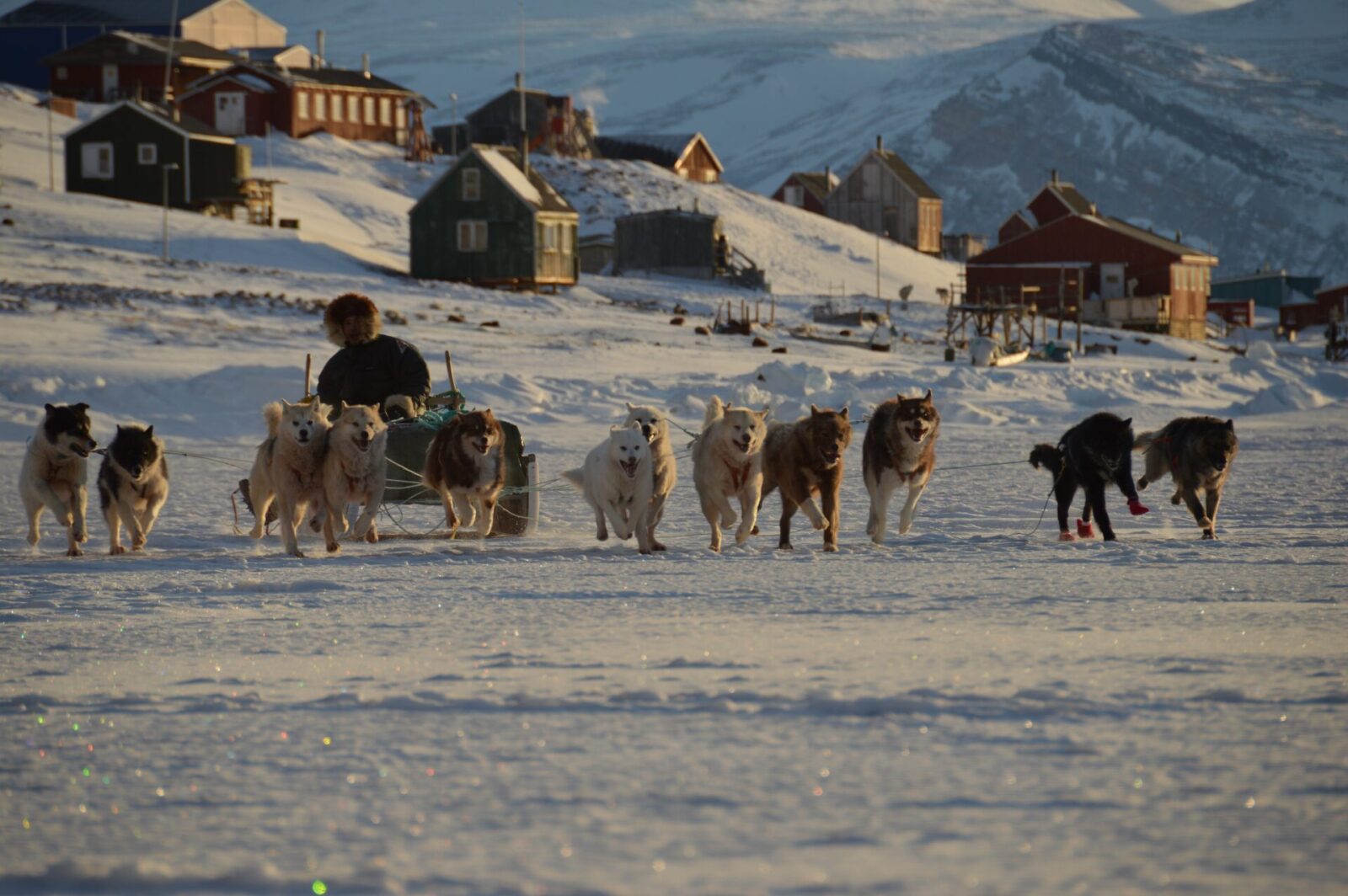
Weather, terrain, prey, light, wind. A journey of roaming allows him to decipher the different conditions of the land in a given moment and it gives him joy as he feels a deeper connection to the land.
“I think people who enjoy fishing or foraging understand this feeling, and having such a land to explore is very enriching.”
Transitioning from explorer to traveler, and finding harmony with nature
He continues his explorations by traveling on dog sled through the snowy terrain and hunting. He explores the Arctic Circle freely with no set plans or schedule and faces nature head on.
“For me, the period of time until I turned 43 was when I was expanding on life. I felt a strong desire to move forward by facing death during this phase. However, now I feel like I am entering the contraction phase in life, so my desire to become closer to the land and live within that environment has grown. Roaming is how I approach this desire.”
“In that sense, even after turning 43, I am still searching for a state where I feel in harmony with nature, so that has not changed.”
“After years of going back and forth to Greenland, I now know the terrain and know where I can find the muskoxen and rabbits. I am confident that even if I run out of food supplies, I will be able to survive by hunting and return home safely.”
“I hope to continue to deepen my confidence and build on my experiences so I can someday travel as freely and on as large a scale as the Eskimos did a hundred years ago.”
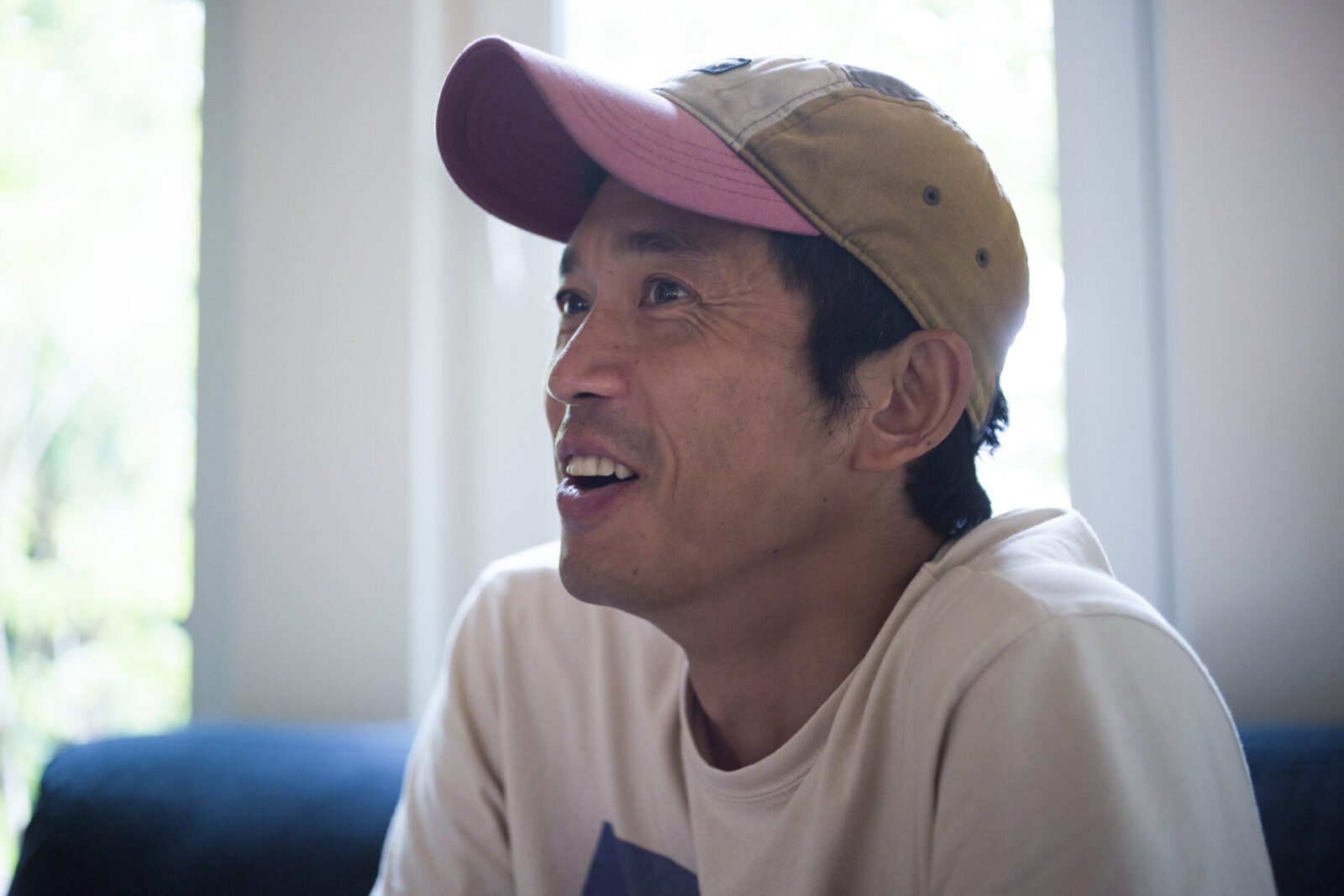
Ever since he set his sights on the unexplored regions of Tibet during his youth, to his travels through polar nights where he achieved one of his ultimate goals as an explorer, Kakuhata is now on a path to even more free and vast journeys of roaming the lands.
Yusuke Kakuhata continues to live a life unlike anyone else.
Photo:Ikuko Takahashi
Translation: Sophia Swanson
Born in 1977. Began working as a freelance editor and writer in 2002 for magazines, in-flight magazines, websites, and advertising. Specializes in domestic and international travel, and has written about 70 regions and countries. He wrote for the book “夢がかなう世界の旅” (World Travel to Make Your Dreams Come True) (Pia Corporation) among other books.
Yuko Souma is the director of Delightful LLC and was born in 1976 in Chichibu City, Saitama Prefecture. Souma began their career working as an assistant to editor and writers at a production company while studying at Waseda University’s Faculty of Letters, Arts and Sciences. In 2004, Souma was an editor and member of the launch team for the free magazine R25 at Recruit Co., Ltd. They left that role in 2010 and has since produced and edited for magazines, books, online publications, booklets for corporations and municipal governments, and owned media.
